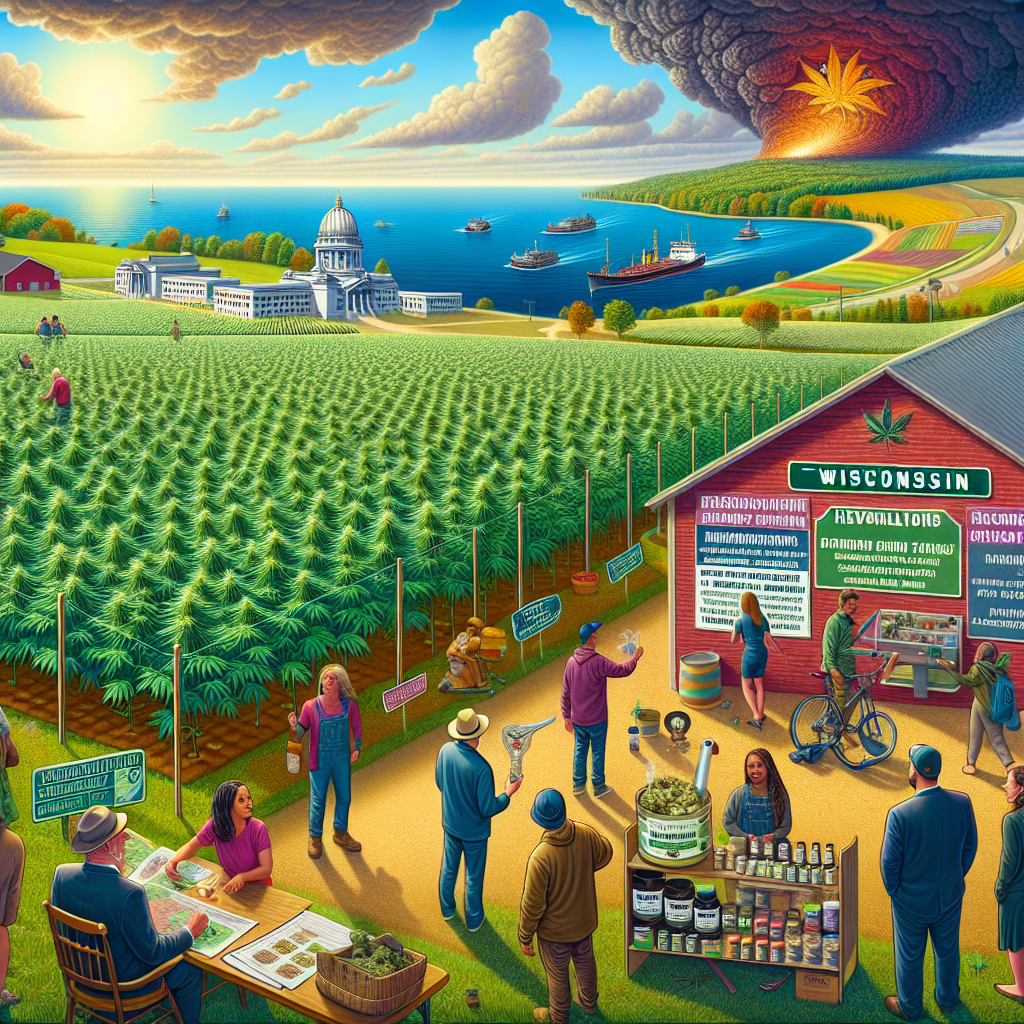
Wisconsin’s Legal Cannabis Landscape: Insights and Implications
The evolving landscape of the cannabis industry in Wisconsin showcases a unique interplay of legal, economic, and social elements that mirror the broader national conversation about cannabis. This includes the legal revisions, marketplace dynamics, interests of consumers, entrepreneurs, and the regulatory frameworks encompassing businesses centered on cultivation, sale, and consumption of cannabis and hemp-derived products.
Despite the continual prohibition of recreational marijuana, Wisconsin’s market has cultivated a niche for hemp-derived products, exploiting gaps within the legal verbiage of state and federal laws, particularly the 2018 Farm Bill which established a distinction allowing hemp with THC concentrations not exceeding 0.3%. This has ushered in a flourishing market for a range of products from edibles to smokable forms.
Businesses in Wisconsin, such as Dane County’s Crone Apothecary and Dank of America, have navigated these legal nuances to provide consumers a gamut of cannabinoid products. The legislation has not only bolstered local entrepreneurs but has also sparked a growth in hemp cultivation across the state, supported by a burgeoning retail environment that meets a growing consumer demand for both therapeutic and recreational cannabinoid formulations.
The marketplace’s response to legal gray areas—illustrated through the booming trade of THCA and other cannabinoids—is a testament to consumer demand outpacing legislative foresight. Innovations in product offerings have also led to diversification in Wisconsin’s local cannabis markets, providing assorted products from full-spectrum tinctures to offerings like THCA-rich flowers that transition to THC upon combustion—a clever sidestep around the existing legal barriers.
Wisconsin’s current regulatory environment, which tolerates the sale of hemp-derived, low-THC products, has however begun tightening. The impending reevaluation of federal cannabis regulations poses both an opportunity and a challenge for local businesses. The possible adjustments could redefine product legality and enforce more stringent regulatory requirements, although potentially opening new avenues for comprehensive scientific research and broader acceptance of cannabis-derived therapeutics.

